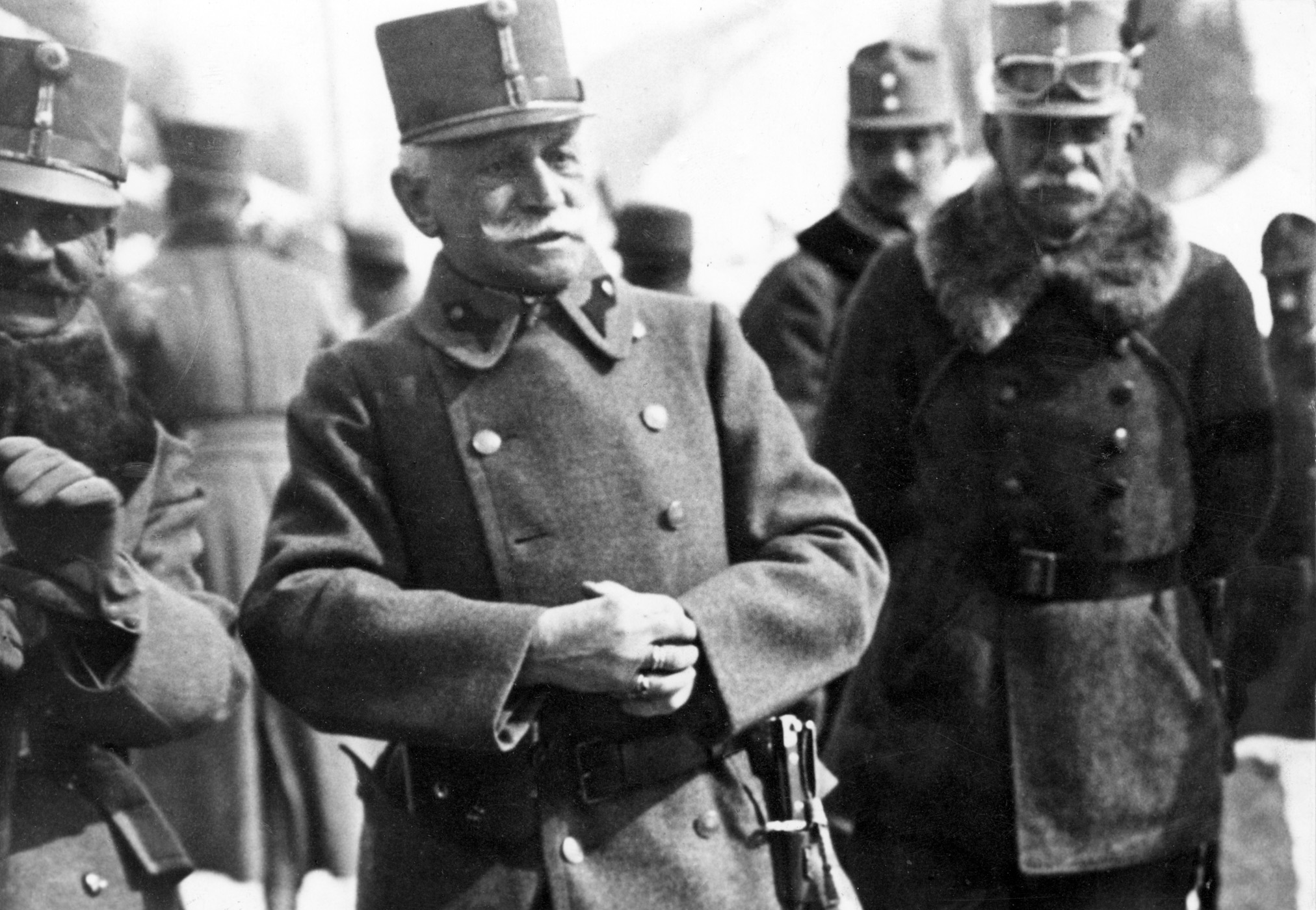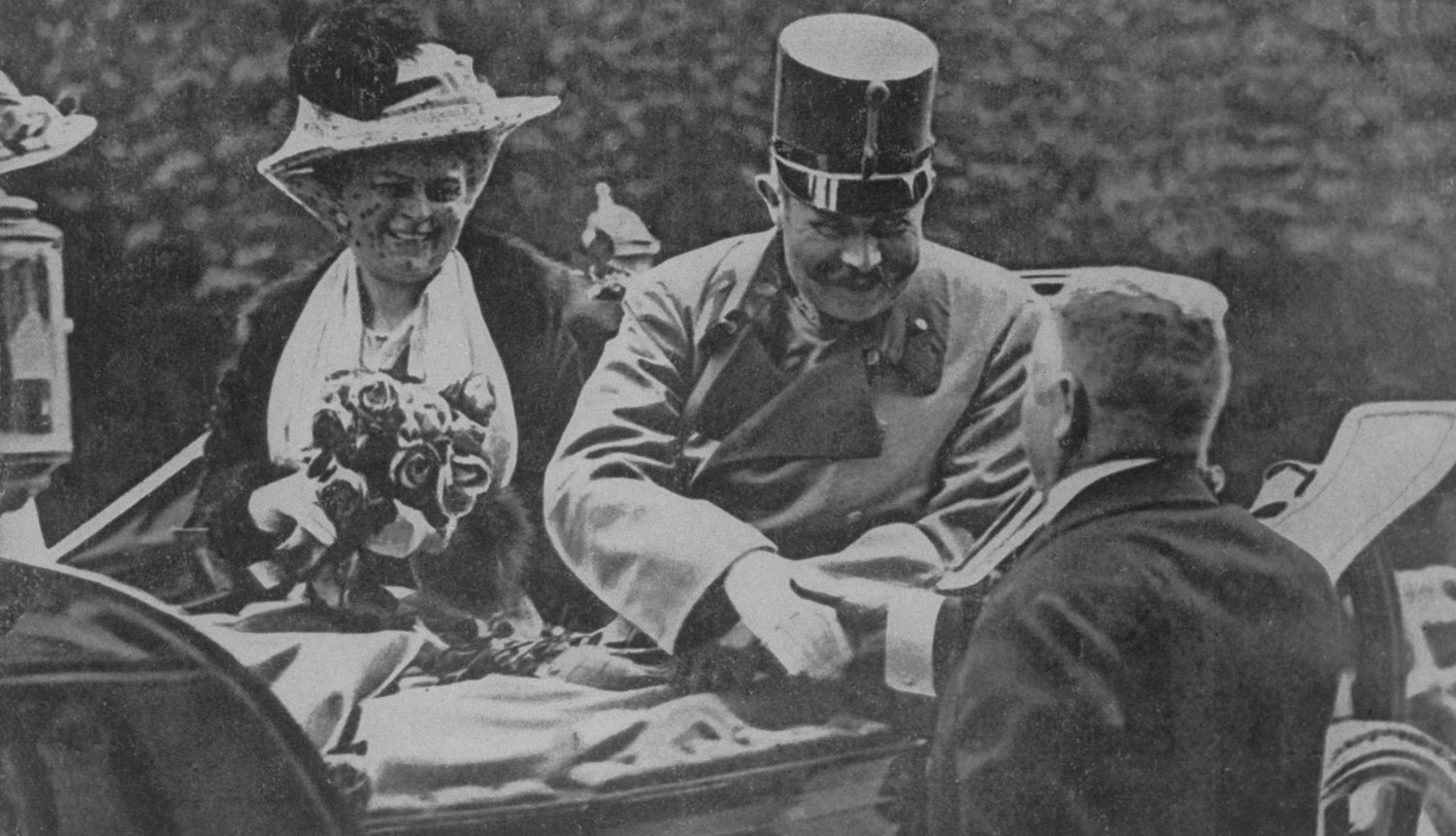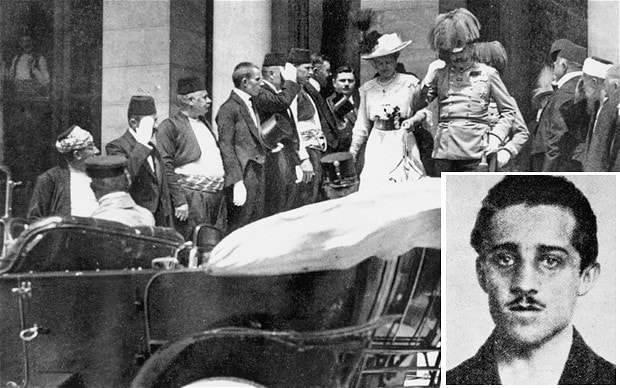
Views: 2331

Somewhere in the 20th century — it is difficult to determine precisely when, but many point to the 1990s anti-Serb craze — historical revisionism on WWI that would have been laughed out of the room in the 1920s and 1930s became widespread in the western mainstream media.
Nobody should be surprised to learn this is an ailment that therefore also affects RT. The Russian-funded outlet is staffed by westerners and modeled after western news channels – and is as such frequently only marginally less wrong on numerous issues than its western counterparts. (All the more so when it comes to the little-understood Balkans.)
Covering the unveiling of a monument to Gavrilo Princip, the famous assassin of Franz Ferdinand, RT insisted Princip “triggered WWI” and had “murdered” Ferdinand. Let’s take a look at these claims.
Triggerman for World War?
 Princip triggering the war implies he pressed some kind of a button that caused the war to happen. However, on July 28th when the war broke out he was already in jail and had been for a month. What could he have possibly done from there?
Princip triggering the war implies he pressed some kind of a button that caused the war to happen. However, on July 28th when the war broke out he was already in jail and had been for a month. What could he have possibly done from there?
The fact is that in the wake of the assassination of Franz Ferdinand nobody thought that a world war was inevitable. A crisis between the powers, of which there had been many in the previous twenty years, was anticipated, but very few thought the crisis could only end in war.
Pinning the responsibility for the war on Gavrilo Princip — as if his action put Europe on rails that could only end in war — therefore serves to whitewash the responsibility of governments that actually made the war happen.*
It would be far more accurate to say Austria “triggered” a war when it declared war on Serbia — a full month after the assassination — and followed it up with an abortive invasion.
Next, it is accurate to say Germany “triggered” a war between powers when it declared war on Russia and France.
However, the British Empire, the United States, Italy, the Ottoman Empire, Romania and Bulgaria and other countries joined the war on their own and have only their own governments to blame for the slaughter they got themselves into and made into a World War – certainly not a 20-year old student-assassin from the Balkans.
Firstly, Princip did not have any intention or expectation of causing a war. Next, the assassination of Franz Ferdinand was neither sufficient, nor necessary cause for WWI – thus the idea this event set the match that lit Europe on fire is ludicrous.
The war was set by the madness and imbecility lurking in European capitals — particularly those of great powers — and particularly in Austria and Germany (as well as in Britain which could have easily stayed out) – and the assassination in Sarajevo was merely the excuse they had been all seemingly waiting for to plunge the continent into collective suicide.
Murder?
When speaking of political assassinations it is not customary to use the word “murder”. The reasons for this are clear. “Assassination” is a neutral, technical term. “Murder” is not. Using “assassination” and “murder” interchangeably immediately implies the assassination was an unjustified crime, rather a justified act of political resistance.
For example, on May 27th, 1942 Czechoslovak commandos assassinated Reinhard Heydrich, the Nazi governor of occupied Bohemia. It would be scandalous to refer to this slaying as “murder”. Clearly Reinhard Heydrich had no business lording it over the Czechs – and they in turn had every right to fight back against him with effective means.
Austrian power had come to Bosnia and Herzegovina in 1878 by the force of arms – against the wishes of its populace, and mainted itself by more force and coercion. It was culturally and historically foreign to this South Slav province and acted there as a colonial government never fully emancipating its new subjects.
Attempts on the lives of Austrian high-ranking officials are comparable to any such attempts in other colonies captured by European powers – such as attempts against British officials in India, or against the French in Indochina.
Franz Ferdinand was a general inspector of the Austrian-Hungarian army, that is, a high-ranking official of the state. He was in Sarajevo in an official capacity and on an official visit. He was traveling in a motorcade loaded with representatives of the Austrian rule in Bosnia. Was his assassination “murder” or a justified act of political rebellion against an oppressive colonial government?
We don’t necessarily have to answer this here, but we can agree that this is certainly not a matter for RT news reports to resolve or even address. RT, if it strives for objective journalism, should stick to the neutral term “assassination” – which neither valorizes nor condemns Princip.
PS, given enough interest I might pen a look into the background of Princip and Ferdinand, and into Austrian rule in Bosnia in general. If you’d like that give me a shout in the comments, or else like this piece on FB.
* When Serbia accepted 9 points of the 10 point Austrian ultimatum of July 23rd and asked for further clarification on the 10th point even Berlin thought an Austrian-Serbian war was now unnecessary. What is more, Serbia had done so even though Vienna had intentionally loaded the ultimatum with so many humiliating demands that according to Austrians the Serbs could never accept it. – Austria went to war because it wanted a war with Serbia, not because the assassination of Franz Ferdinand demanded it.
Originally published on 2015-07-01
Author: Marko Marjanovic
Source: Russia Insider
Origins of images: Facebook, Twitter, Wikimedia, Wikipedia, Flickr, Google, Imageinjection, Public Domain & Pinterest.
Read our Disclaimer/Legal Statement!
Donate to Support Us
We would like to ask you to consider a small donation to help our team keep working. We accept no advertising and rely only on you, our readers, to keep us digging the truth on history, global politics and international relations.
[wpedon id=”4696″ align=”left”]

FOLLOW US ON OUR SOCIAL PLATFORMS








